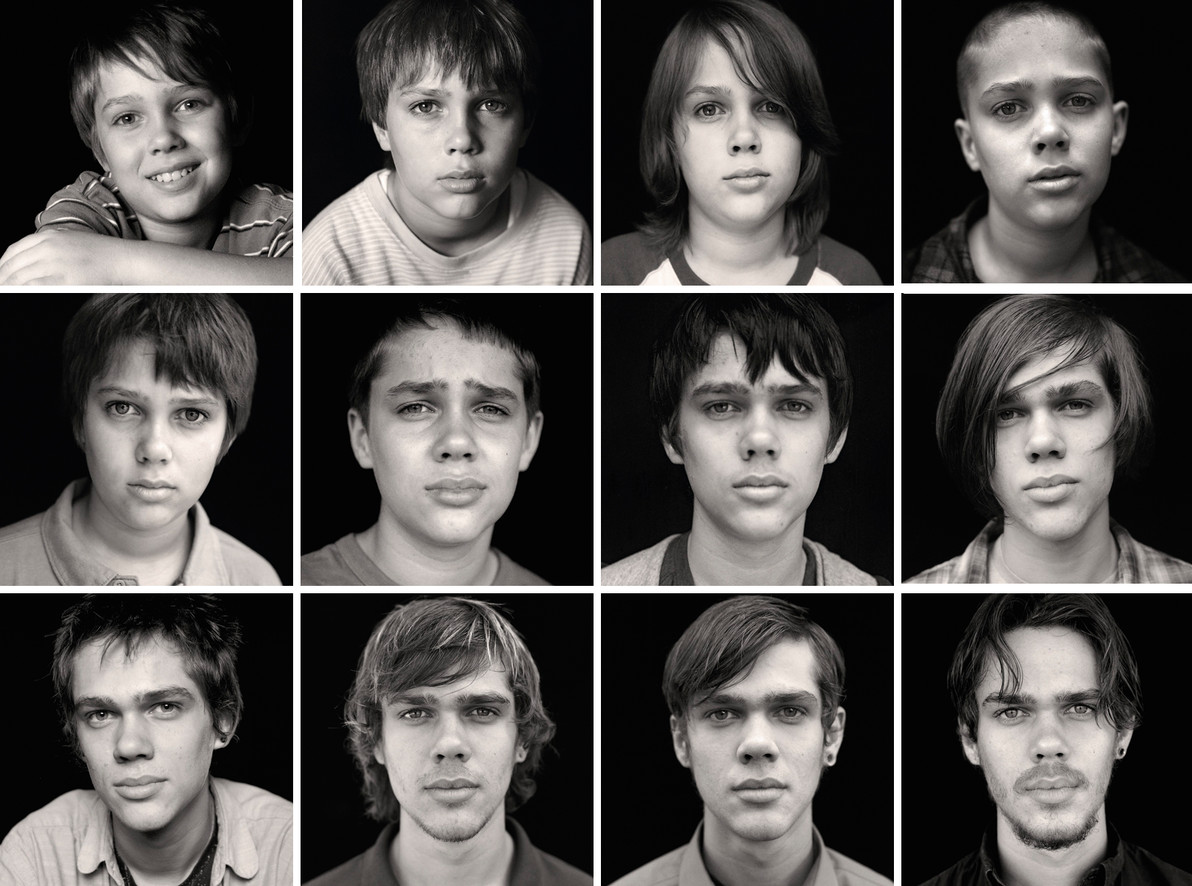Ellar Coltrane and the Burden of the Iconic Role
 Wednesday, September 30, 2015 at 3:08PM
Wednesday, September 30, 2015 at 3:08PM  Kieran, here. Ellar Coltrane, the boy at the center of Richard Linklater's much heralded Boyhood has landed his next role, a supporting part in The Circle, an adaptation of Dave Eggers' novel about privacy paranoia in the age of social media. Tom Hanks is already attached to star in the thriller, which will be directed by James Ponsoldt (The Spectacular Now). Coltrane will reportedly play Emma Watson's boyfriend who wants to go off the grid, out of the grasp of the eponymous Circle (which is not, repeat NOT Google). That's kind of funny, considering Mason's somewhat self-conscious, adolescent arrogance screed against social media and smart phones in Boyhood.
Kieran, here. Ellar Coltrane, the boy at the center of Richard Linklater's much heralded Boyhood has landed his next role, a supporting part in The Circle, an adaptation of Dave Eggers' novel about privacy paranoia in the age of social media. Tom Hanks is already attached to star in the thriller, which will be directed by James Ponsoldt (The Spectacular Now). Coltrane will reportedly play Emma Watson's boyfriend who wants to go off the grid, out of the grasp of the eponymous Circle (which is not, repeat NOT Google). That's kind of funny, considering Mason's somewhat self-conscious, adolescent arrogance screed against social media and smart phones in Boyhood.
The Spectacular Now suggested that Ponsoldt has a gift for pulling great performances from young actors, stretching our imaginations as to what they're capable of. Can he do that again for Ellar Coltrane?
Let me just say that I was an enthusiastic fan of Boyhood and I quite liked Coltrane in it. Er...maybe that's an entirely honest appraisal of my feelings about Coltrane's performance. I thought the movie acquitted itself well while working around a performance with very clear peaks and valleys. Coltrane's doe-eyed befuddlement works really well in certain key moments of the film, as when he witnesses the domestic abuse inflicted on his mother. That same blankness (and the role of Mason does require him to be somewhat blank) tends to fail him in moments when he's expected to communicate a clear persepctive, like the aforementioned scene where he's railing against Facebook. I didn't leave Boyhood with a clear idea of his acting chops in either direction. Boyhood was such a specialized project in conception and execution that it's hard to extrapolate how someone might perform beyond that. (Especially with very little frame of reference. Other than a very brief appearance in Fast Food Nation, Coltrane hasn't appeared in anything else.)
Are you curious to see what we get from Coltrane going forward?

From Quinn Cummings (The Goodbye Girl) and Justin Henry (Kramer vs. Kramer) to more recent examples of Haley Joel Osment (The Sixth Sense) and Dev Patel (Slumdog Millionaire) it's rare that young actors who have their debuts or breakthroughs in heralded projects go on to have careers that match that initial acclaim. One can certainly debate the merits of each (and my opinion ranges from very warm to very cold), but these famous examples all demonstrate that it can be very hard to crawl out from under the weight of a culturally resonant breakthrough performance.


